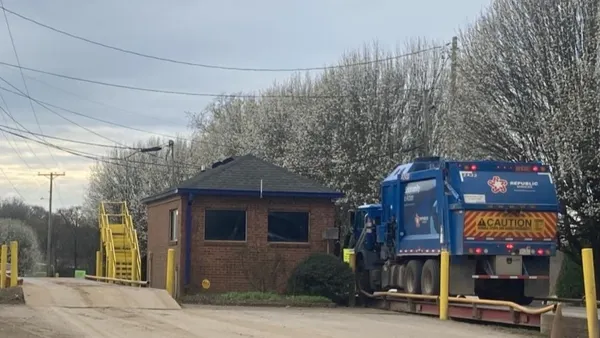UPDATE March 15, 2018: In the month since Promontory Point Resources (PPR) withdrew its application for a Class V landfill permit, the company has been trading barbs with Utah's Department of Environmental Quality over transparency, as reported by the Standard-Examiner.
A March 5 letter from PPR said the agency was biased against it and had "made public records easily accessible to environmental activists opposing Promontory’s Application." PPR also took issue with the characterization that it sought to take "hazardous waste." The coal ash it planned to accept is not classified as such. The site already has a Class I permit to accept municipally contracted material.
A report from consultants hired by the DEQ concluded that the company hadn't demonstrated a need for new Class V capacity based on existing market demand. The fact that this evaluation was completed at all, after PPR had already withdrawn its application, has become another point of contention.
DEQ issued its own letter in response to PPR, citing the state's public records law, but has also removed social media posts and links from its website about the project. The Standard-Examiner reposted these documents.
UPDATE Feb. 26. 2018: Developers behind the Promontory Point Landfill in Utah have withdrawn their application for a Class V landfill permit, as reported by the Standard-Examiner and The Salt Lake Tribune.
The decision came in a brief letter to Utah's Department of Environmental Quality (DEQ) dated Feb. 16, in which the company asked the agency to stop review "until further notice.”
The DEQ, and local environmental groups, believe this is the result of public pressure amping up in recent weeks. While the landfill already has a Class I permit to accept municipally contracted material, it was seeking the Class V to take commercial and out-of-state waste. Some were concerned that this could include coal ash or other hazardous waste.
Promontory Point Resources said it will now focus on engaging with local stakeholders, opening the site for Class I business this year and working to educate the community about the safeguards in place. Many environmental advocates are unconvinced and hope to see the site never open at all, or potentially open at a different inland location.
Dive Brief:
- The Promontory Point Landfill, located on a peninsula along Utah's Great Salt Lake, has become a significant source of local debate. The site has been permitted to accept Class I waste since 2001, but remains empty. Now, its owners seek approval for a Class V permit to import out-of-state material, as reported by the Standard-Examiner.
- The site received final approval in 2016, and began construction in 2017, but has yet to lock down any dedicated sources of material. Local counties say they have enough capacity at other sites and view this one as too remote, unless the economics line up for rail transport. Area residents are concerned about environmental hazards caused by placing waste of any kind — especially coal ash and industrial waste — so close to the lake, as reported by News4Utah.
- Landfill owner Allos Environmental has pushed back on all of these concerns, including the assertion that it is seeking approval to specifically handle regulated hazardous waste. The company says it has built safeguards to protect the local environment and can be an economic boon for the region, according to an editorial written by Allos for The Salt Lake Tribune.
Dive Insight:
Promontory Point is seen as a somewhat odd fit for the region, because local Box Elder County has no interest in utilizing it. The same goes for nearby Weber and Davis counties. The sites they're using already have plenty of capacity and are easier to access than Promontory's peninsula location. The 1,000-acre landfill's direct proximity to bird habitats has also been raised as a concern by both the U.S. Fish and Wildlife Service and Utah Department of Natural Resources.
Allos counters that Utah needs more landfill capacity because the state's population is expected to increase 2.5 million by 2050. As for environmental concerns, the company says the closest cell is more than 1,000 yards from the lake and it has "significant design and physical controls to protect the lake and all of the surrounding properties." Allos also points to an estimated $2 million in annual revenue for Box Elder County through taxes and host fees, as well as the creation of 30 jobs "paying much higher hourly rates than the state average."
As it stands, Promontory Point can already start accepting local municipal, commercial and industrial waste as soon as this spring. Approval for the Class V permit to import material is expected to take longer, but wouldn't be unprecedented. Importing has become increasingly common in multiple states, especially ones that can offer lower tip fees than their more space-constrained neighbors.
The site's remote location may mitigate some of the usual community relations issues that come with importing, but its environmental proximity is still an unknown element. Numerous examples exist of waste leaching or falling into waterways due to weather events and structural failures. Promontory's position on a lake known for its high winds will make that an ever-present concern.









